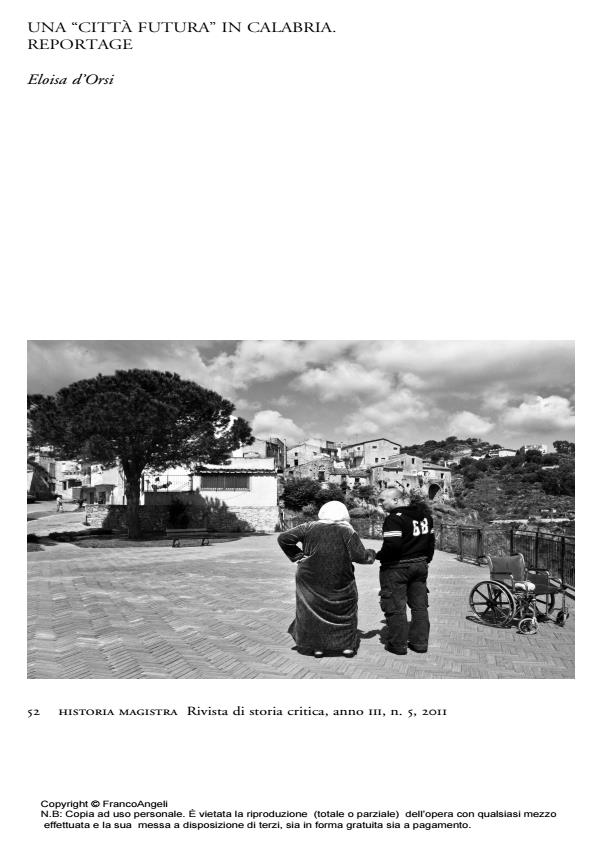Una "Città futura" in Calabria. Reportage
Journal title HISTORIA MAGISTRA
Author/s Eloisa d'Orsi
Publishing Year 2011 Issue 2011/5
Language Italian Pages 9 P. 52-60 File size 14949 KB
DOI 10.3280/HM2011-005006
DOI is like a bar code for intellectual property: to have more infomation
click here
Below, you can see the article first page
If you want to buy this article in PDF format, you can do it, following the instructions to buy download credits

FrancoAngeli is member of Publishers International Linking Association, Inc (PILA), a not-for-profit association which run the CrossRef service enabling links to and from online scholarly content.
The review «Il Mulino», founded in Bologna in 1951 by a group of about ten young academics who met at the local University, aims to be an intellectual laboratory, not tied to any political party. The situation of the intellectuals, the condition of Italian schools and Universities are the first topics analysed and until the end of the ’50s are the group’s main interest. «Il Mulino» from cultural review becomes a militant one: the focus shifts towards political parties, tendencies and congresses; the aim is to favour a dialogue among those who are considered to be the positive forces in the Italian political life: Catholics, liberals and socialists. Only through the collaboration of these three forces Democracy can be developed. No dialogue, instead, with the Communists. Communism is considered outside the democratic spirit, it is an advocate of an absolute, centralized and bureaucratic State, where there is no space for Freedom. The advent of a centre-left coalition will be favourably greeted since it is seen as the most serious political attempt to subtract from communist influence the working class and the peasants, their biggest supporters, carrying out those reforms necessary to satisfy their needs and aimed to guarantee the Country’s democratic evolution.
Keywords: «Il Mulino»; centre-left; imperfect bipartitism; Democrazia Cristiana; liberalism
Eloisa d'Orsi, Una "Città futura" in Calabria. Reportage in "HISTORIA MAGISTRA" 5/2011, pp 52-60, DOI: 10.3280/HM2011-005006